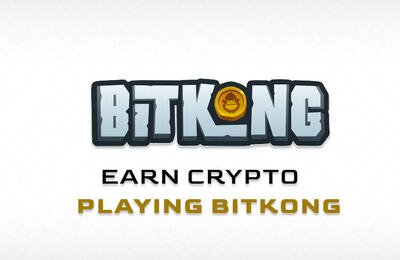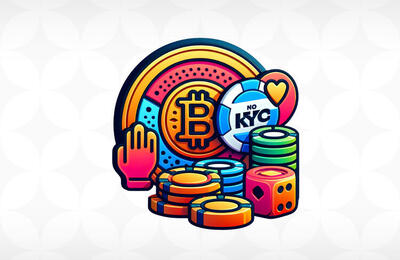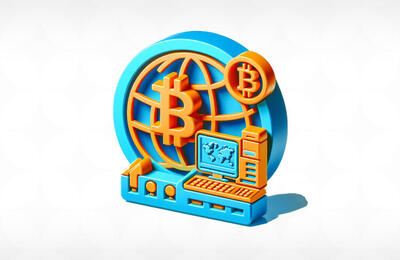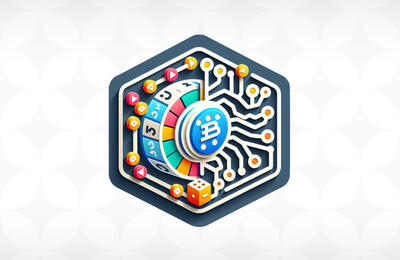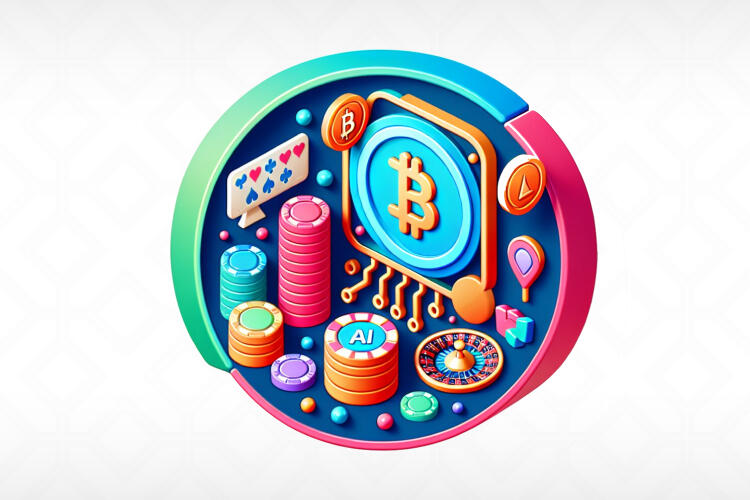
The gambling and iGaming industries are undergoing a profound transformation, driven by the integration of advanced technologies such as artificial intelligence (AI), cryptocurrencies, and blockchain. These innovations are reshaping the landscape of digital gambling, offering unprecedented levels of security, privacy, and user engagement.
This article delves into the core technologies revolutionizing these sectors, highlighting how they contribute to the development of a more secure, private, and engaging gaming experience. Each section of this article explores a different aspect of how these technologies are changing the industry, supported by detailed analyses and discussions.
Cryptocurrencies and iGaming: Enhancing Transaction Security and Anonymity
Cryptocurrencies like Bitcoin have become pivotal in the digital revolution of the iGaming industry. By leveraging blockchain technology, these digital currencies ensure a high level of security and enable anonymous transactions, removing the need for personal banking information.
This shift not only protects users from potential fraud but also simplifies the process of deposits and withdrawals, making it faster and more efficient. The adoption of cryptocurrencies in gambling not only facilitates enhanced security but also introduces a new layer of privacy that attracts a niche market of privacy-conscious players.
The Role of Bitcoin in Gambling: Pioneering Decentralized Gaming Economies
Bitcoin, the first and most well-known cryptocurrency, has carved a niche in the gambling world by facilitating decentralized transactions. Its use in online casinos and betting platforms has introduced a new economy where players can gamble with reduced fees, enjoy lower transaction costs, and experience faster payout processes.
Bitcoin’s inherent properties such as decentralization, immutability, and transparency make it an attractive option for online gambling platforms looking to offer their users more control over their gaming finances.
AI’s Impact on iGaming: Customizing Gaming Experiences
Artificial intelligence is transforming the iGaming industry by personalizing the gaming experience. AI algorithms analyze player behavior and preferences to offer tailored game recommendations and adjust game settings for an enhanced user experience.
This technology also helps in identifying and preventing fraudulent activities, ensuring a safer gaming environment. By using AI to analyze vast amounts of data, platforms can create highly engaging and dynamic gaming experiences that keep players returning.
Secure and Tailored Gaming Through Technology: Revolutionizing Player Engagement
For those looking to experience this cutting-edge world, different platforms offer a gateway to modern gambling, where you can immerse yourself in an advanced, secure, and dynamic gaming environment. Here, the convergence of technology and traditional gaming meets, creating a luxurious, high-tech atmosphere that is both engaging and revolutionary.
The seamless integration of these technologies into the gaming experience makes it possible for players to enjoy a sophisticated, yet comfortable gaming environment that was previously unattainable.
Blockchain’s Influence on Casino Operations: Transparency and Fairness
Blockchain technology offers unparalleled transparency in gambling operations by recording all transactions on a public ledger. This ensures that the games are fair and that the operations are transparent, reducing the chances of manipulation and increasing trust among players. The immutable nature of blockchain also means that once a transaction has been recorded, it cannot be altered, thus providing a permanent and verifiable record of all transactions.
The Future of Gambling With Cryptocurrencies: Expanding Accessibility Worldwide
The adoption of cryptocurrencies in gambling platforms has made it possible for users from jurisdictions with strict gambling regulations to participate. This accessibility is poised to expand the global gambling market, allowing users from various parts of the world to engage in gambling activities without the constraints of traditional banking systems.
Cryptocurrencies offer a global reach and ease of access that traditional fiat currencies cannot match, thus opening up the global gambling market to a much larger audience.
AI and Problem Gambling: Mitigating Risks Through Predictive Analytics
AI tools are increasingly being used to combat problem gambling. Through predictive analytics, these tools monitor player behavior to identify risky gambling patterns. This proactive approach helps in providing timely interventions and support to those at risk, fostering a responsible gaming environment. AI’s ability to learn and adapt to individual player behaviors makes it an essential tool in the fight against gambling addiction.
Innovations in Payment Processes: Streamlining Deposits and Withdrawals
The integration of AI and blockchain technologies has significantly streamlined the process of deposits and withdrawals in online casinos. These technologies automate and secure transactions, reduce processing times, and minimize human error, enhancing the overall user experience. The efficiency brought about by these technologies ensures that players can enjoy their gaming without the hassle of lengthy payment processes.
Regulatory Challenges and Technological Solutions: Navigating New Legal Landscapes
As technologies like AI and cryptocurrencies continue to permeate the gambling industry, regulatory frameworks are evolving. Innovations are being developed to comply with these changing regulations, ensuring that the adoption of these technologies is both smooth and legal. The dynamic between technological advancement and regulatory requirements is complex, but essential for the sustainable growth of the gambling industry.
The Societal Impact of Technological Advances in Gambling: Ethical Considerations and Economic Effects
The technological revolution in gambling also raises ethical considerations and has significant economic impacts. The shift towards digital gambling has implications for addiction, consumer protection, and even the economic benefits that come with technological advancements in this sector. As the industry continues to evolve, it is imperative to balance the technological benefits with responsible gambling practices to mitigate the potential negative impacts on society.






